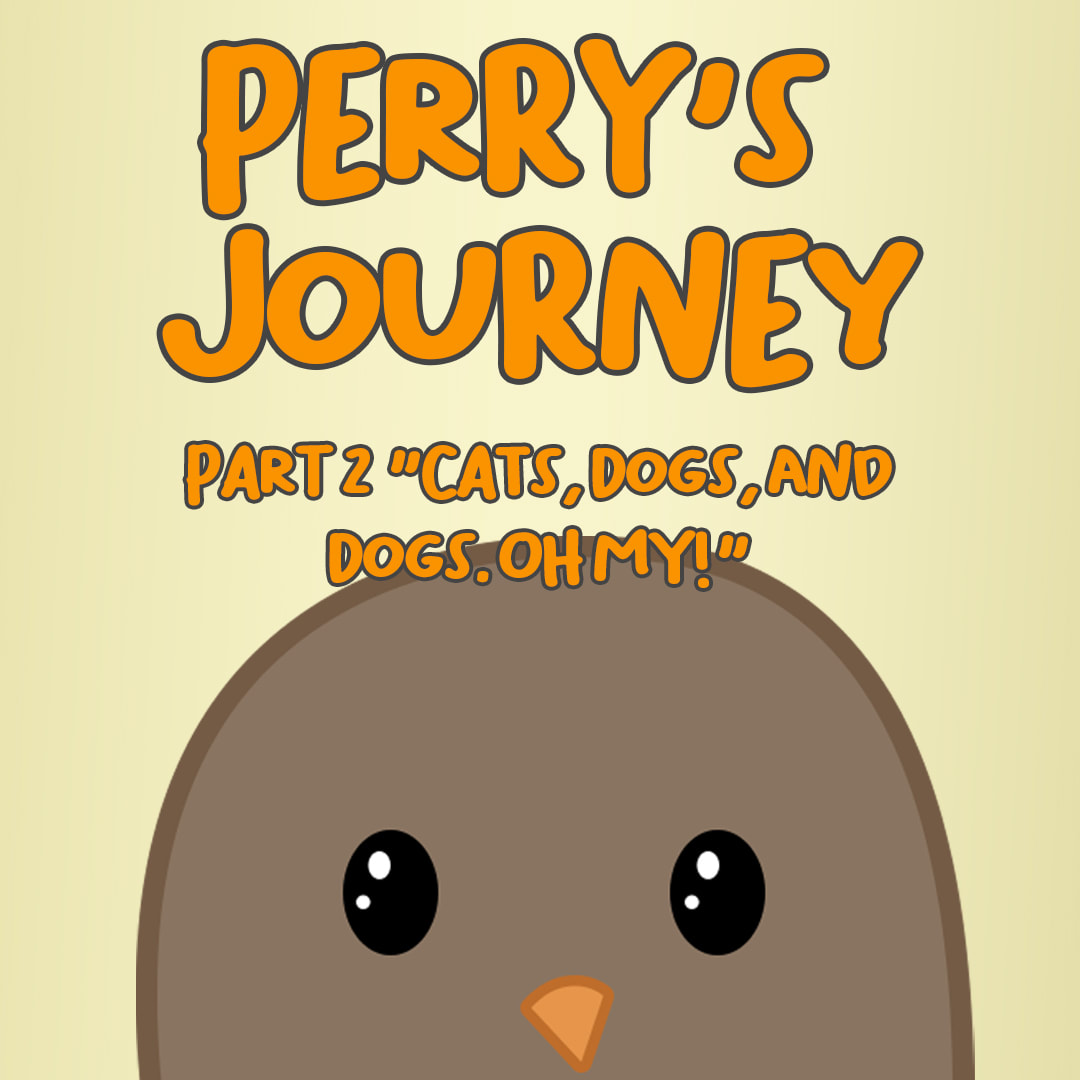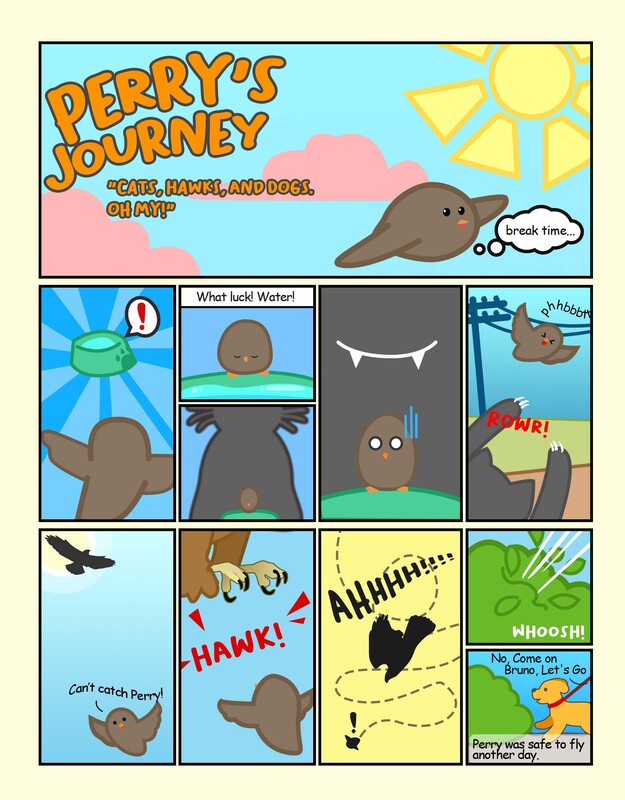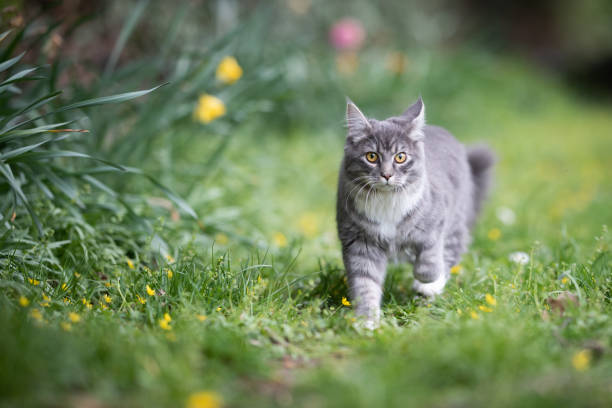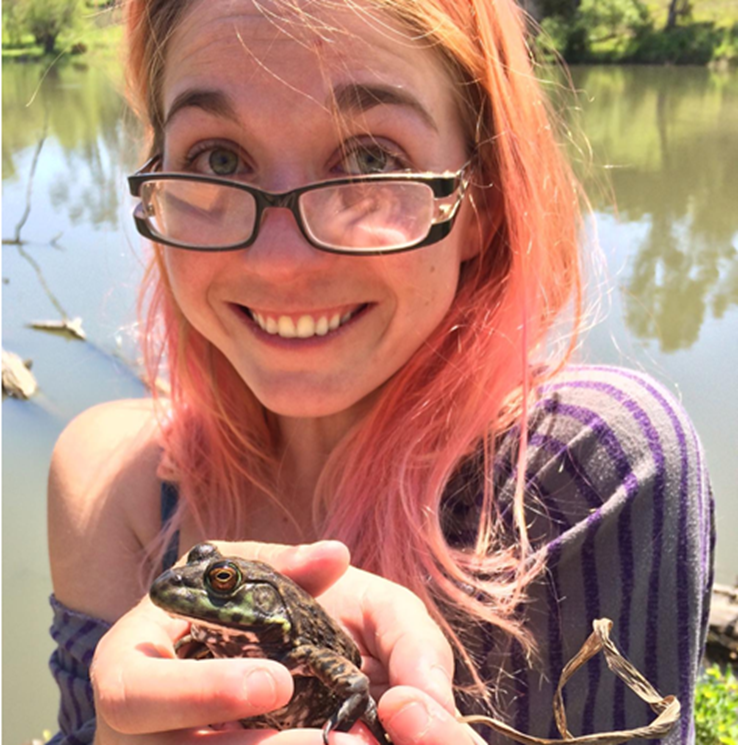|
Science Outreach Intern Katrina McCollough
Issue Spotlight - Predators The adventure Perry just had is not an uncommon one for birds, they run a gauntlet of predators on a daily basis. Common predators of birds include larger birds of prey like hawks, domestic and feral cats, snakes, and surprisingly (although not as commonly) insects as well as deer!
Hawks - Now, when you think of hawks, you may not think of them as ‘city-dwellers,’ but given the lack of forests and open fields available to them, hawks are turning to cities to hunt. Habitat loss is affecting all animals, and it is hitting predators especially hard. Less predators can lead to increases in population and increases in resource competition, entire ecosystems are affected by these imbalances. It’s not surprising that hawks are moving to the cities, but what does this mean for the cities and what does it mean for the fields they left? Time will undoubtedly tell. It’s not the cats’ or the hawks’ fault, they are all part of the web of life and playing their parts. Humans are the ones who have pushed things out of balance, making more and more habitats that are good for us and any animals that can adapt with us. Can you think of any other animals that have adapted to human environments? What We Can Do There are quite a few things we can do to help with this predator imbalance. Keep your dogs (and cats if you walk them) on a leash. Some birds build their nests on the ground and even the friendliest dogs can scare a mom and dad away from their nest and eggs if disturbed too often. This means paying attention to leash laws whenever you go hiking or go to the beach, it’s not to spoil the dog’s fun, it’s to protect other plants and animals. Also, protected areas are protected for a reason! And if you’re getting a cat, think about keeping them indoors, it not only lengthens their lifespan, but you could be saving lots of little lives: birds, lizards, and bugs alike. One last thing, and it’s something you may not think of in association with protecting birds: dispose of your trash properly. Areas where there is a lot of trash and human activity tend to attract corvids and gulls, which are a danger to young families with eggs and chicks. We already know how bad it is to litter, but I bet not many of you knew it could be dangerous too! The Mission of Perry's Journey - A Message from the Illustrator It’s important we understand that just because birds can fly over it all, doesn’t mean they aren’t affected by what’s going on down here on the ground. The population of North American birds has dropped by nearly 30% since the 1970s, that is a total of almost 3 billion birds. Gone. Birds are incredibly important to the balance of our ecosystems: they are essential as pollinators and for seed dispersal, particularly for native plants, and they feed on and help control a variety of critters we consider pests like insects and rodents. Bird studies teach us about climate and the environment, and the birds themselves are key indicators of environmental change. And, most simply, birds are beautiful, and they provide us with music and joy. The protagonist of this story, Perry, is doing his part as a bird, migrating to his northern breeding location to hopefully pass on his little brown bird genes. It’s all he can do. Perry’s Journey illustrates the important journey of birds like him across the globe, who are doing their parts to help. Migrating birds are disproportionately affected because they need not just one habitat, but multiple habitats that can serve as stopping points along their journeys. We call these migration corridors and it’s important that they are protected: for the birds’ sakes as well as our own. Birds like Perry can’t control what happens on the ground, or in the water and air, but we can. During Perry’s journey over the couse of ten posts, we will go into some of the main issues facing not just migrating birds, but all birds, and what you can do to help. To support SFBBO's work to conserve birds and their habitats through science and outreach, please make a donation to our Spring Appeal!
1 Comment
10/10/2022 12:00:08 am
Good post. I learn something new and challenging on websites I stumbleupon on a daily basis. Its always interesting to read articles from other writers and practice something from other sites.
Reply
Your comment will be posted after it is approved.
Leave a Reply. |
WingbeatWingbeat is a blog where you can find the most recent stories about our science and outreach work. We'll also share guest posts from volunteers, donors, partners, and others in the avian science and conservation world. To be a guest writer, please contact [email protected]. Archives
July 2024
Categories
All
|
San Francisco Bay Bird Observatory ● 524 Valley Way, Milpitas, CA 95035 ● 408-946-6548 ● [email protected]





 RSS Feed
RSS Feed